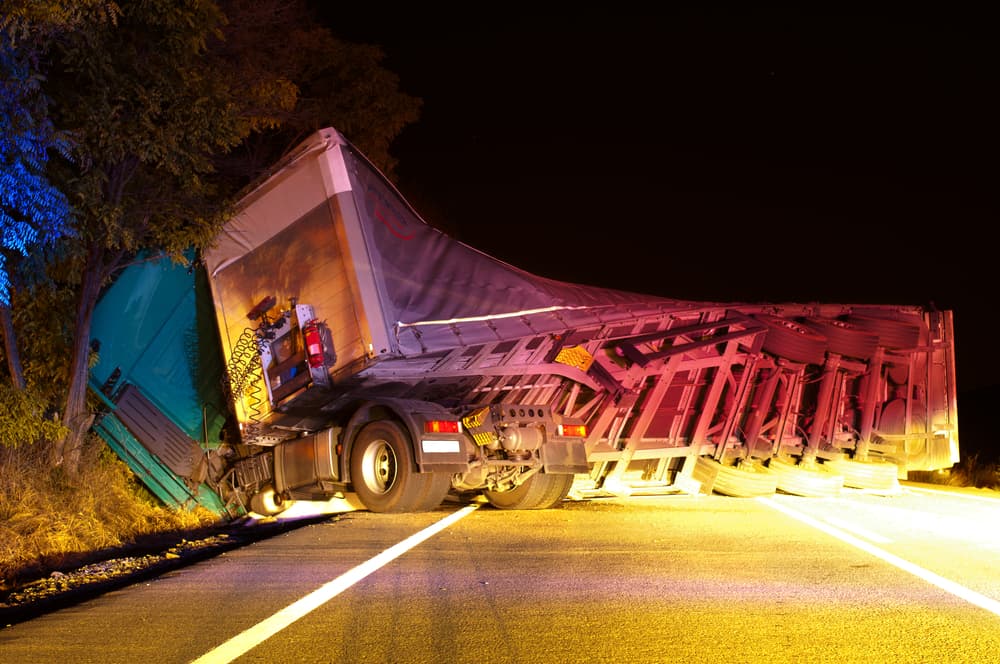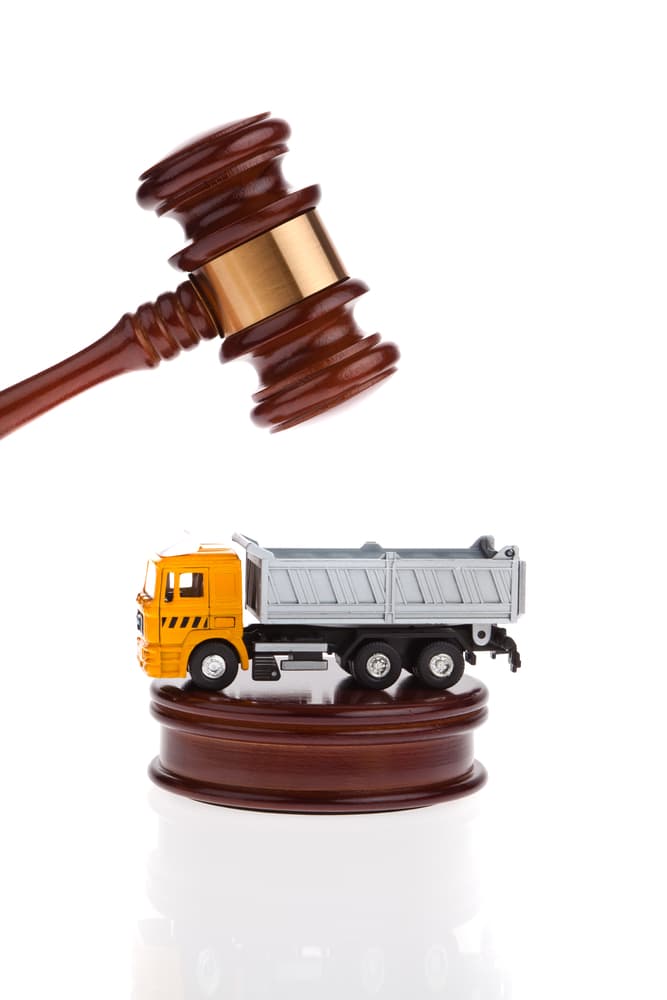Statistically speaking, truck accidents cause injuries to more than 150,000 Americans per year. This means 150,000 people every year ask themselves, “What now?” and have to figure out their next steps in the claims process to obtain compensation in the aftermath of a truck crash.
After a truck accident, the worst thing that can happen to you is being face-to-face with your fears and uncertainties. For many people, the aftermath of a truck crash can be too stressful and overwhelming, mainly because they do not understand what to expect during the claims process and what they can do to improve their chances of a favorable outcome. Below is an overview of the many steps of the truck accident claims process to make your life post-accident a little easier and less uncertain. Further, guide your claim with a truck accident attorney in St. Louis.
What Are the Elements of Negligence in Truck Accident Cases?

Negligence is a legal theory that requires the plaintiff to prove certain elements to hold the defendant responsible for damages. In a nutshell, negligence refers to the failure to act as a reasonable person should under similar circumstances. Below is an overview of the elements necessary to build a case based on negligence:
- Duty of care. Everyone on the road has a duty to act in a way that does not put anyone else in harm’s way. This duty is heightened for truck drivers and trucking companies due to the potential for significant harm that commercial trucks can cause. This duty of care covers many factors, including following traffic laws, ensuring the vehicle is properly maintained, and ensuring the driver is adequately trained and rested.
- Breach of duty. To succeed in a negligence claim, the truck driver, trucking company, or another liable party must have breached their duty of care. A breach occurs when the conduct falls below the legal standard expected to prevent foreseeable harm. This can include violations such as speeding, failing to maintain the truck, or driving without sufficient breaks, all of which can lead to accidents.
- Causation. Causation relates to the link between the breach of duty and the accident. The plaintiff (the injured victim or the surviving family members of the deceased in a fatal truck crash) must prove that the defendant’s breach directly caused the accident and the subsequent injury/death. In truck accident cases, demonstrating causation can be complex, often requiring evidence like accident reconstruction, driver logs, maintenance records, and eyewitness testimony.
- Damages. The plaintiff must also demonstrate they have suffered damages due to the accident caused by the defendant’s negligence. Due to the magnitude of truck accidents, damages in crashes involving large trucks can be extensive. They may include medical expenses, property damage, loss of income, mental anguish, reduced quality of life, and pain and suffering. Unless you keep meticulous records of all related expenses and impacts on your life, proving these damages can be tough.
Wondering how exactly you should prove these four elements? It's time to seek legal counsel during this difficult time. With a lawyer’s help, you can gather the necessary evidence and documentation to establish the four elements of negligence and succeed in your case.
The Step-by-Step Guide to the Truck Accident Claims Process
This guide will walk you through the key stages of the truck accident claims process one step at a time.
Step 1: Filing a Claim for Compensation
Following the accident, one of your first steps (once you get to safety and seek medical attention) is to inform the proper insurance companies about the incident. You must provide the essential details of the accident to initiate your claim for compensation. A truck accident lawyer should always handle this process.
Step 2: Documenting the Truck Accident
Hire a lawyer to gather all possible documentation related to the accident and build a strong case for you. Documentation includes evidence such as police reports, photos of the accident scene, eyewitness statements, surveillance footage, medical reports detailing any injuries you sustained, and documentation of property damage, among others. Often, the success of a truck accident claim depends on how comprehensive the victim’s documentation of the accident is.
Step 3: Proving the Other Party’s Fault
To receive compensation, you may need to prove that the other party was at fault for the accident. Collect any evidence that demonstrates negligence on the part of the truck driver or trucking company, including but not limited to logs of driving hours, maintenance records of the truck, and any traffic citations issued. Often, truck accidents are the result of violations of Federal Motor Carrier Safety Administration (FMCSA) regulations. If this was the case in your accident, you must present evidence proving the violation.
Step 4: Determining the Accident-Related Damages and Losses
Compile a detailed list of all the damages and losses you have suffered due to the accident. This should include medical expenses, repair or replacement costs for your vehicle, lost income, and any other related expenses. Non-economic damages like pain and suffering and reduced quality of life should also be considerations.
Step 5: Negotiating with the Insurance Company
Insurance companies will often offer a settlement, but it is not uncommon for their initial offers to be lower than what you may be entitled to. Be prepared for a negotiation period, and do not be afraid to reject any offers that do not meet your needs. It is often best to have a lawyer represent you during negotiations to advocate for your best interest.
Step 6: Determining if a Lawsuit Is Necessary
If negotiations with the insurance company go nowhere, it may be necessary to file a lawsuit. The decision to take your claim to court is not easy, considering that litigation is a lengthy and costly process. Consider the extent of your damages, the strength of your evidence, and legal counsel before deciding to pursue a lawsuit.
Step 7: Settling the Claim if a Fair Offer Is on the Table
Should the insurance company present a fair offer covering your damages and losses, you may settle the claim out of court. Before accepting any settlement offer, you need to be 100 percent sure that it adequately compensates you for your expenses and the trauma you have experienced.
What Happens if Your Truck Accident Claim Goes to Court?

While statistics show that most claimants obtain compensation without going to court, a trial is sometimes the only viable option if negotiating with the opposing party does not produce the desired outcome. When your claim goes to court, you can expect the following things to happen:
- Complaint Is filed and served. The process begins when you, the plaintiff, formally file a civil complaint against the defendant(s), which can be the truck driver, trucking company, or other liable parties. The complaint will detail your claims and the damages you are seeking. Once filed, this document is legally served to the defendant, notifying them of the lawsuit.
- Answer to the complaint. The defendant has a specific time frame to respond to your complaint, usually around 20-30 days. This document will address your allegations by admitting, denying, or claiming insufficient knowledge to admit or deny each one. The answer might also include counterclaims or affirmative defenses.
- Discovery. Discovery is the pre-trial phase, where both sides exchange information. The process is often exhaustive and time-consuming, as it allows both parties to get a deeper understanding of the case’s facts. It helps prevent surprises at trial and encourages settlement.
- Written questions. Both sides may send written questions, called interrogatories, which require written answers. These pertain to the details of the incident, the extent of injuries, and other relevant information.
- Production of documents. You and the defendant will have to provide relevant documents during this stage. For a truck accident, this can include your medical records and bills, the truck driver’s driving logs, and records of the vehicle’s maintenance, among others.
- Depositions. Depositions are in-person interviews conducted under oath. The attorneys for both sides can question you, the opposing party, and any witnesses related to the accident.
- Hiring expert witnesses. Expert witnesses, like accident reconstruction specialists or medical experts, may be brought by your lawyer to provide specialized knowledge that supports your case.
- Pre-trial motions. Before the trial, attorneys have a chance to file motions to resolve procedural issues or even request to dismiss parts of the case when appropriate. A common pre-trial motion is a motion for summary judgment, where one side argues there is no dispute over the material facts and seeks a ruling in their favor.
- Mediation. The court may order mediation, a settlement negotiation facilitated by a neutral third party (mediator) to allow the parties to resolve the matter before going to trial.
- Trial. If mediation does not result in a mutually beneficial settlement (it often doesn’t), your case will proceed to trial. A trial for a truck accident claim involves the selection of a jury, opening statements by both sides, presentation of evidence and witness testimony, cross-examination by the opposing side, closing arguments, and then jury deliberation and verdict.
- Verdict and appeal. The jury (or judge in a bench trial) will then deliver a verdict. If you win the case, the court will award damages. If you lose, you have the right to appeal the decision, which moves the case to a higher court for review.
Going through all these steps without legal representation can be both scary and anxiety-inducing. And remember: your case may not reach this far if your lawyer can resolve your insurance claim for the amount of money you deserve.
The Role of a Lawyer in a Truck Accident Claim

“Okay, so now I know what happens during the truck accident claims process, but what role will my lawyer play in all this if I had one?” you might be wondering. Well, you can benefit immensely from working with a lawyer after a truck accident because lawyers play a pivotal role in post-accident legal processes:
- They will apply their extensive legal knowledge. An experienced lawyer brings a tremendous amount of legal knowledge to your case. Their experience is vital in understanding the complex laws and regulations surrounding the trucking industry and interpreting them to benefit your claim.
- They will use their resources. Lawyers have access to a vast network of resources that can prove very useful in building a strong claim. This includes industry experts, medical professionals, and accident reconstruction analysts. Your lawyer will use these resources to gather evidence, formulate legal strategies, and prove the extent of your injuries and losses.
- They will negotiate with the insurance company on your behalf. Negotiation is no rocket science. It’s an art. When dealing with insurance companies, you want an excellent negotiator on your side. Attorneys understand how insurance companies operate and what methods they use in negotiations. They will communicate with insurers to ensure you are treated with the respect you deserve, fighting for a settlement that reflects the true cost of your damages.
- They will avoid mistakes during the claims process. The road to compensation following a truck accident may be full of potential pitfalls that can jeopardize your claim. A lawyer acts as a safeguard, advising you on the do’s and don’ts during the claims process. They will ensure that you complete and file your paperwork properly, that all applicable statutory deadlines are met, and that you avoid making statements to insurers that can hurt your claim.
- They will advise if you should settle or go to court. At one point during negotiations, you will have to decide whether to accept a settlement or proceed to court. A knowledgeable lawyer will analyze your unique situation and advise on the best course of action. They will be honest about the prospects of your case and what to expect if you choose litigation.
- They will maximize your compensation. Lawyers understand what you are entitled to and can take the necessary steps toward reaching your goal of securing the maximum compensation you deserve.
- They will provide you with peace of mind. Having a lawyer means having peace of mind. That’s as simple as that. Knowing an experienced professional is shouldering the burden of the legal proceedings allows you to focus on your treatment and health, which can have a positive impact on your recovery.

If you are still uncertain whether or not you can benefit from working with a lawyer during the truck accident claim process, consider this: many lawyers offer free initial consultations, which means you can discuss your case with a personal injury lawyer without any financial commitments. During the consultation, you can decide for yourself whether legal representation is necessary in your case.


